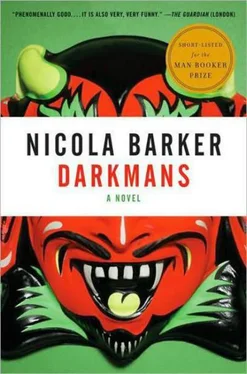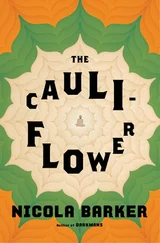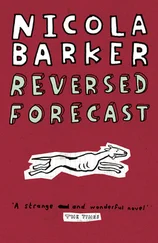The time for talking was over. Beede put his money where his mouth was. He shut up and pulled on his overalls. And it was hard graft: dirty, heavy, time-consuming work (every tile numbered and categorised, every brick, every beam), but this didn’t weaken Beede’s resolve (Beede’s resolve was legendary. He gave definition to the phrase ‘a stickler’).
Beede was committed. And he was not a quitter. Early mornings, evenings, weekends, he toiled tirelessly alongside a group of other volunteers (many of them from Canterbury’s Archaeological Trust) slowly, painstakingly, stripping away the mill’s modern exterior, and (like a deathly coven of master pathologists), uncovering its ancient skeleton below.
It wasn’t all plain sailing. At some point (and who could remember when, exactly?) it became distressingly apparent that recent ‘improvements’ to the newer parts of Mill House had seriously endangered the older structure’s integrity–
Now hang on—
Just…just back up a second—
What are you saying here, exactly?
The worst-case scenario? That the old mill might never be able to function independently in its eighteenth-century guise; like a conjoined twin, it might only really be able to exist as a small part of its former whole.
But the life support on the newer part had already been switched off (they’d turned it off themselves, hadn’t they? And with such care, such tenderness), so gradually — as the weeks passed, the months — the team found themselves in the unenviable position of standing helplessly by and watching — with a mounting sense of desolation — as the older part’s heartbeat grew steadily weaker and weaker. Until one day, finally, it just stopped.
They had all worked so hard, and with such pride and enthusiasm. But for what? An exhausted Beede staggered back from the dirt and the rubble (a little later than the others, perhaps; his legendary resolve still inappropriately firm), shaking his head, barely comprehending, wiping a red-dust-engrained hand across a moist, over-exerted face. Marking himself. But there was no point in his war-painting. He was alone. The fight was over. It was lost.
And the worst part? He now knew the internal mechanisms of that old mill as well as he knew the undulations of his own ribcage. He had crushed his face into its dirty crevices. He had filled his nails with its sawdust. He had pushed his ear up against the past and had sensed the ancient breath held within it. He had gripped the liver of history and had felt it squelching in his hand–
Expanding—
Struggling—
So what now? What now? What to tell the others? How to make sense of it all? How to rationalise? Worse still, how to face the hordes of encroaching construction workers in their bright yellow TML uniforms, with their big schemes and tons of concrete, with their impatient cranes and their diggers?
Beede had given plenty in his forty-odd years. But now (he pinched himself. Shit . He felt nothing ) he had given too much. He had found his limit. He had reached it and he had over-stepped it. He was engulfed by disappointment. Slam-dunked by it. He could hardly breathe, he felt it so strongly. His whole body ached with the pain of it. He was so stressed — felt so invested in his thwarted physicality — that he actually thought he might be developing some kind of fatal disease. Pieces of him stopped functioning. He was broken .
And then, just when things seemed like they couldn’t get any worse–
Oh God!
The day the bulldozers came…
(He’d skipped work. They’d tried to keep him off-site. There was an ugly scuffle. But he saw it! He stood and watched — three men struggling to restrain him — he stood and he watched — jaw slack, mouth wide, gasping —as History was unceremoniously gutted and then steam-rollered. He saw History die –
NO!
You’re killing History!
STOP! )
— just when things seemed like they were hitting rock bottom (‘You need a holiday. A good rest. You’re absolutely exhausted— dangerously exhausted; mentally, physically…’) things took one further, inexorable, downward spiral.
The salvageable parts of the mill had been taken into storage by Eurotunnel. One of the most valuable parts being its ancient Kent Peg Tiles–
Ah yes
Those beautiful tiles…
Then one day they simply disappeared.
They had been preserved. They had been maintained. They had been entrusted. They had been lost.
BUT WHERE THE HELL ARE THEY?
WHERE DID THEY GO?
WHERE?
WHERE?!
It had all been in vain. And nobody really cared (it later transpired, or if they did, they stopped caring, eventually — they had to, to survive it), except for Beede — who hadn’t really cared that much in the first place — but who had done something bold, something decisive, something out of the ordinary; Beede —who had committed himself, had become embroiled, then engrossed, then utterly preoccupied, then thoroughly—
Irredeemably
— fucked up and casually (like the past itself) discarded.
And no, in the great scheme of things, it didn’t amount to very much. Just some old beams, some rotten masonry, some traditional tiles. But Beede suddenly found that he’d lost not only those tiles, but his own rudimentary supports. His faith . The roof of Beede’s confidence had been lifted and had blown clean away. His optimism. He had lost it. It just went .
And nothing— nothing— had felt the same, afterwards. Nothing had felt comfortable. Nothing fitted. A full fifteen years had passed, and yet — and at complete variance with the cliché—for Beede time had been anything but a great healer.
Progress, modernity (all now dirty words in Beede’s vocabulary) had kicked him squarely in the balls. I mean he hadn’t asked for much, had he? He’d sacrificed the Spider Orchid, hadn’t he? A familiar geography? He’d only wanted, out of respect , to salvage…to salvage…
What?
A semblance of what had been? Or was it just a question of…was it just a matter of…of form ? Something as silly and apparently insignificant as…as good manners ?
There had been one too many compromises. He knew that much for certain. The buck had needed to stop and it never had. It’d never stopped. So Beede had put on his own brakes and he had stopped. The compromise culture became his anathema. He had shed his former skin ( Mr Moderate, Mr Handy, Mr Reasonable ) and had blossomed into an absolutist. But on his own terms. And in the daintiest of ways. And very quietly–
Shhh!
Oh no, no, no , the war wasn’t over–
Shhh!
Beede was still fighting (mainly in whispers), it was just that — by and large — they were battles that nobody else knew about. Only Beede. Only he knew. But it was a hard campaign; a fierce, long, difficult campaign. And as with all major military strategies, there were gains and there were losses.
Beede was now sixty-one years of age, and he was his own walking wounded. He was a shadow of his former self. His past idealism had deserted him. And somehow — along the way — he had lost interest in almost everything (in work, in family), but he had maintained an interest in one thing: he had maintained an interest in that old mill.
He had become a detective. A bloodhound. He had sniffed out clues. He had discovered things; stories, alibis, weaknesses; inconsistencies. He had weighed up the facts and drawn his conclusions. But he had bided his time (time was the one thing he had plenty of — no rush ; that was the modern disease — no need to rush).
Читать дальше
Конец ознакомительного отрывка
Купить книгу












